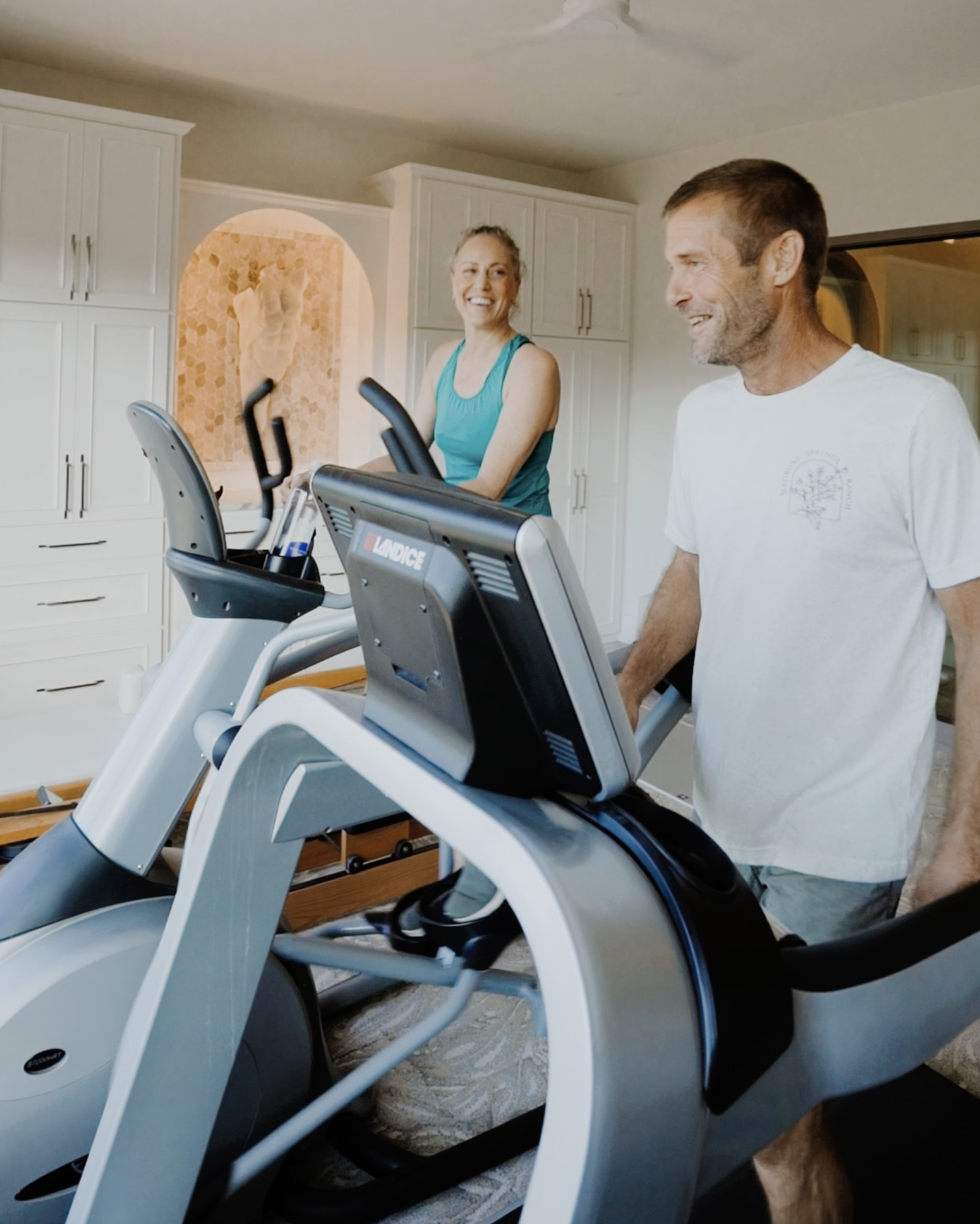Listen on: Apple Podcasts | Spotify | Amazon Music | Podcast Index | Overcast | YouTube
What you’ll find in this episode:
0:04 Live Long and Well
15:33 Sitting Habits Across Countries
21:23 Impact of Prolonged Sitting on Health
35:26 Concluding thoughts
Key Takeaways
- Sit Less, Move More: The evidence is clear—reducing sitting time and increasing movement are crucial for health.
- Exercise Isn’t a Substitute for Moving: While exercise is beneficial, sitting has its own distinct risks that need addressing.
- Practical Tips: Even small changes, like standing up regularly, can make a significant difference in your health.
Understanding Movement and Steps
Daily steps vary significantly by age, gender, and location. While the ideal number of steps isn’t clear-cut, communities with higher step counts, like the Blue Zones, offer insights.
The Impact of Sitting
Ten years ago, Americans sat for perhaps 8 hours per day and that may be much higher post COVID. Sitting time varies by country. You can estimate your sitting time here.
Studies show that those who sit more have much higher mortality (34% higher in those who sit 10 hours/day vs. those sitting < 1 hour/day). Although exercise has many benefits, it does not fully undue the harmful effects of prolonged sitting. Being sedentary also appears to raise cancer risk.
Blood vessel changes have been shown after 2 hours of sitting. We don’t know the “safe” amount of sitting–my interpretation of the evidence suggests perhaps 10 hours raises the risk substantially, <3 may be ideal, and perhaps 6 hours/day may be a good target.
Practical Strategies to Reduce Sitting
Studies have shown promising results with interventions like standing desks, fitness trackers, and gamified challenges to encourage movement. Even small changes in daily routines can lead to measurable health benefits. And, exercise can reduce existing heart abnormalities. Try to stand regularly (perhaps every 30′), have walking “meetings”, or use a phone/watch app to remind you.

Scientific research underscores the intricate interplay between lifestyle factors and human health. Exercise, a cornerstone of well-being, enhances cardiovascular health, boosts mood, and promotes cognitive function. Coupled with proper nutrition, it fosters optimal physical performance and supports immune function. Beyond the individual, social ties exert profound effects on health, buffering against stress and enhancing longevity. Meanwhile, exposure to hot and cold environments elicits physiological adaptations, bolstering resilience and metabolic efficiency. Adequate sleep, essential for cognitive consolidation and metabolic regulation, underscores the importance of restorative rest. Moreover, the mind-body harmony underscores the intricate relationship between mental and physical health, highlighting the profound impact of mindfulness and stress management on overall well-being. Integrating these factors into daily life cultivates a holistic approach to health promotion and disease prevention.